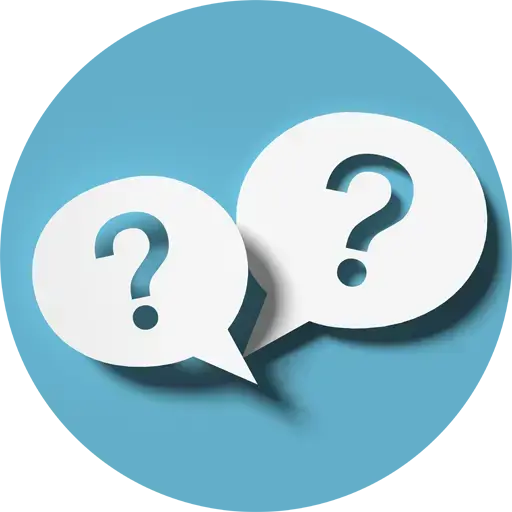- 0 Posts
- 15 Comments
There are and they should appear as a blurred topic when you scroll in “New - All”. Their posts are growing so much that it is getting annoying. Do you have “see nsfw” checked in your settings? That is unchecked by default when you make an account.

 1·2 years ago
1·2 years agoAnni fa ho dovuto passare il test d’ingresso e l’impressione personale che ho avuto (e ho ancora) è che valuta per la maggior parte la tua capacità mnemonica, sia sugli argomenti teorici che sulle domande di logica: se impari a memoria le nozioni delle guide per la preparazione passi e via. Ho riscontrato che benché dicessero i test fossero fatti apposta per la mia facoltà, molte nozioni chieste avevano poco a che fare con il percorso che “bloccavano” e quelle poche rilevanti, se non si sapevano ci mettevi pochissimo ad impararle al momento dello studio della disciplina. Quindi direi che se l’obiettivo era valutare la capacità intellettuale lascia molto a desiderare. Piuttosto mi sembra che questi test d’ingresso li abbiano inventati per farci tutto un business e lucrare sul pagamento dell’iscrizione agli esami e sulla vendita di manuali.
Se continuano così sparisce il problema dell’obesità.

 54·2 years ago
54·2 years agoDictatorship + “psychiatry and narcology institute” = prison to conduct unethical human experiments on an unwanted minority, probably for militar purposes (biological or chemical warfare)

 2·2 years ago
2·2 years agoNo, they showed their hand and they will not change their attitude. They got caught in their lies and their malicious intentions. I do not mind them behaving like a business, I mind that they are becoming unethical in the way they are pursuing their goals, because they think we are passive enough that will accept such type of conduct without batting an eyelash.
This is such a loaded question.
Many philosophers tried to answer it, some reaching an optimistic vision, while others concluding it was all doom and gloom (nihilists etc.). There are so many answers, because there are so many variables. To touch the point of the iceberg it depends for example if you believe in the existence of a prime cause (aka God and thus some kind of spiritual dimension) or not; and if yes, how you imagine its attitude (is it sentient? If yes, is it neutral, good or evil? How much does it interfere in the life of the universe? And so on and on…). That shapes how you start to analyze the purpose of human life and existence as a whole. So let’s stick on the dilemma of being atheist or theist (avoiding the gray areas like being agnostic, because I’m trying to keep it super simple):
If you say no, there is no God, I believe in the chaotic order that is evolution: you may think for example that the purpose of life is hedonism, the pursuit of pleasure, because you live only once, in the now. And then you enter the rabbit hole of “what kind of hedonism?”.
If you say yes and God is caring, the purpose of life is usually the betterment of your soul, to trascend the material dimension. There is an internal evolution here at play. And here the question then is how? You will have to pick which interpretation of the spiritual world convinces you more, a traditional religion or an esoteric philosophy (theosophy etc.).
If your God is neutral, then you probably have full agency, you choose what is you life purpose. You are free to make you own meaning, to play in this playground. The choices here become infinite like the stars.
If your God is evil, like the Gnostic Demiurge, your goal will be to rebel against the current system of oppression, escaping the prison it built to keep you in, for example reaching the true God or becoming your own God.
And, I stress it once more, this is only one of many variables.
In the end nobody knows. This is a personal quest with answers based on your personal intimate experience on what is life, what you currently value, what do you think is it worth living for and the type of relationship you have (or have not) built with its incorporeal, abstract, intuitive, invisible side. Fools are the ones that claim their answer is the only right one, because humanity in its current state does not possess the tools to prove or confute anything on this subject with undeniable evidence. If not fools, then they are manipulative bastards, that want to take advantage of your confusion and lack of direction to persuade you into pursuing a goal that does not benefit you, but them.

 2·2 years ago
2·2 years agoYeah, defederation is not the answer. We are few and we need to stick together. That’s the whole point of the fediverse after all, many connected together.

 5·2 years ago
5·2 years agoHi, fellow lurker! I’ve being doing my part commenting here and there. I’m loving this place!

 2·2 years ago
2·2 years agoQui funziona uguale. E così un po’ dappertutto. L’internet per sua natura è instabile, la sua unica costante è che è in costante mutamento. Quindi siti e informazioni vanno e vengono. Per esempio, basta non pagare l’hosting o il domain e bye-bye info! O magari il social di turno decide di fare una bella purga per accontentare gli azionisti e i marketers (sto guardando a te Tumblr). Insomma, non è proprio vero che tutto ciò che rimane in Internet rimane per sempre. Solo se qualcuno si prende la briga di fare una copia, perché ritiene quell’info davvero importante da dover essere diffusa. Morale della favola: non fidatevi di quei cantastorie che lodano il cloud, lo streaming e robe simili. Bisogna scaricare e salvare sempre nel disco fisso tutto ciò che interessa davvero.
Non mi sorprende. Certi business di successo americani non attecchiscono qui in Italia per il semplice fatto che abbiamo un rapporto culturale diverso con il cibo.
Difficile quantificare. Dipende da quanto è leggero o pesante il tema, se il contenuto ti appassiona al punto che non puoi staccare gli occhi dalla pagina, se hai abbastanza tempo libero. Edit: E ora che ci penso, dipende anche da quanto sei stanco. La letteratura, se letta per comprendere il messaggio in modo che ti rimanga, richiede una certa attenzione ed energia mentale. Se vivi una routine stressante, ti passa completamente la voglia.
Ricordo che da adolescente divoravo il libro di Harry Potter appena uscito in meno di una settimana, e che avevo letto la Trilogia della Fondazione di Asimov in meno di tre. Ora non riesco a finire un libro in meno di un mese, a meno che non applichi tecniche di skimming e simili. Bisogna anche dire che solitamente mi ritrovo a leggere monografie o manuali per varie ragioni.
Grazie per l’info, non sapevo di Friendica, sembra la soluzione migliore.
Convenience and habit breed complacency. They do not undestand yet, that corporations are slowly eroding their freedom of exploring and sharing information. Through limitations you control accessibility, that then later you can monetize. So in the end they will have to pay, to get what they had once for free.
It is a form of brainwashing, when you think everything needs to be monetized. It is a form of brainwashing, when you end valuing only what you are forced to pay for. It is a form of brainwashing, when you defend those that are taking away your access to something you had for free.
Why aren’t those same people that defend the right of corporations to make a profit, defending the rights of the mods of getting paid for their labor? So is it okay for the individuals to volunteer their free labor and share ther content for the good of the community, but the corporations must make money out of it? Pick one model: sharing or monetization. You can’t have both, you hypocrites!



Gorgeous 😍